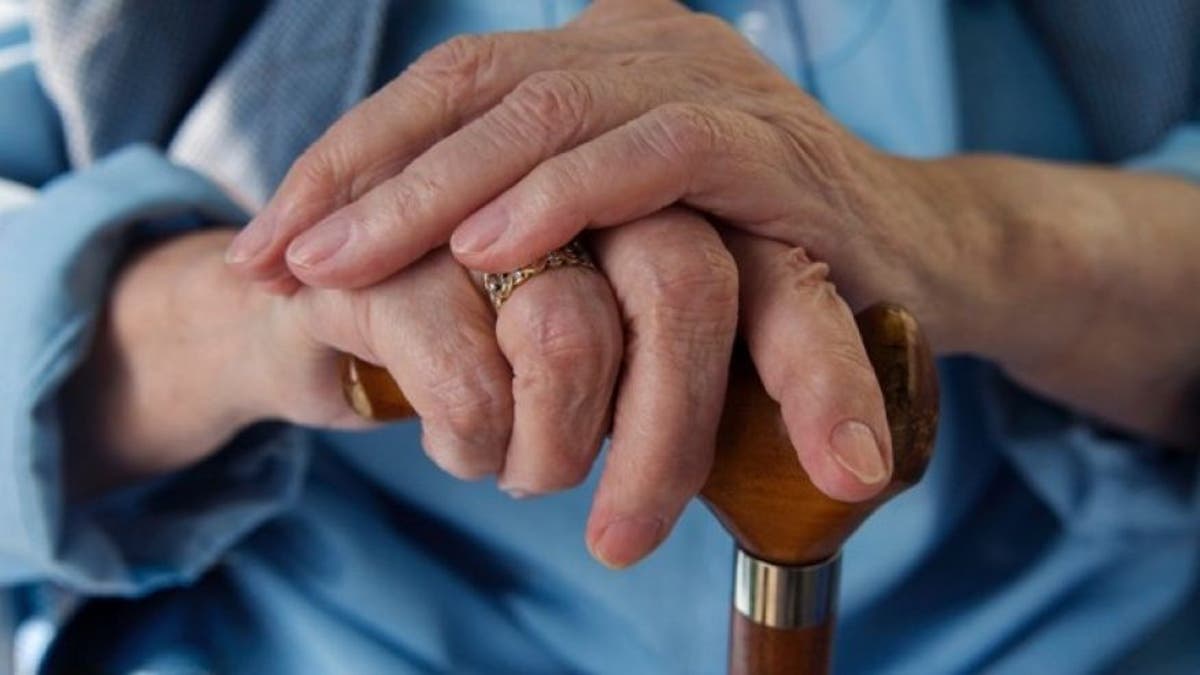Seniors living on the streets: Rising rents, inflation push more elderly people out of their homes
More seniors are living on the streets. Homeless agencies across the country say it's an alarming new trend because of rising rents and inflation.
Frequent knee pain was less likely to develop in those over age 50 who have arthritis and walked for exercise compared to those who did not walk, according to a study published in the Journal Arthritis and Rheumatology.
Researchers at Baylor College of Medicine looked at over 1200 individuals diagnosed with arthritis who were part of the Osteoarthritis Initiative, a multiyear observational study where participants self-reported the amount of time they walked for exercise.
They found that those who walked for exercise were 40% less likely to develop new frequent knee pain compared to the non-walkers.
"When we looked at those who did not have regular knee pain at the beginning of the study , those who walked for exercise were LESS likely to develop regular knee pain compared to those who do not walk", Dr. Grace Hsiao-Wei Lo, assistant professor of immunology, allergy and rheumatology at Baylor, chief of rheumatology at the Michael E. DeBakey VA Medical Center and first author of the study, told Fox News.
TAKING IBUPROFEN WITH CERTAIN HIGH BLOOD PRESSURE MEDICATIONS MAY DAMAGE KIDNEY'S STUDY SAYS
"These findings are particularly useful for people who have radiographic evidence of osteoarthritis but don’t have pain every day in their knees," Lo, who also is an investigator at the Center for Innovations in Quality, Effectiveness, and Safety at Baylor and the VA said a release about the research.

Hips and knees are the most frequent culprits of arthritis, experts say. (iStock)
Lo told Fox News that the findings however suggest that once people have regular knee pain, those who walked for exercise did not have more resolution of symptoms than those who did not walk.
"The idea here being that prevention is the key," Lo told Fox News. If you can catch people before they get regular symptoms and get them to walk, this might be very helpful in preventing the development of regular knee pain. The opportunity might already be lost once regular knee pain has already occurred," Lo said in the interview.
The investigator did tell Fox News that if you do have knee pain every day, there are still positives to walking. "If you already have daily knee pain, there still might be a benefit, especially if you have the kind of arthritis where your knees are bow-legged," she said in the release.
Lo told Fox News that the researchers also found that those who walked for exercise had less damage to their joints, based on x-ray findings. Lo also said that 30% of people age 60 or older have knee osteoarthritis, so "the public health implications of these findings are potentially substantial."

Close up of senior couple having a walk by the beach (iStock)
Osteoarthritis is the most common form of arthritis, according to the Centers for Disease Control and Prevention (CDC). It involves the "wear and tear" of the joint surfaces in the knee, physical therapists explained to Fox News. This can create inflammation around the joint surfaces, erode cartilage and contribute to pain. Physical therapists explained to Fox News that the knee joint usually has space between the femur, (thighbone) and tibia (a calf bone) and is lined with cartilage. With arthritis, the space between the joint lines eventually becomes smaller and cartilage is "worn out" leaving the patient with a "bone on bone" scenario that often is associated with pain and potentially sets them up for a total knee replacement, physical therapists explained to Fox News.
Lo said that walking for exercise also has other health benefits. These include improved cardiovascular health and decreased risk of obesity, diabetes and some cancers, which are the reasons why the CDC recommends physical activity, according to Lo. The study author also said unlike medications, which often come with a cost and potential side effects, walking is free and has minimal side effects.
GET BETTER SLEEP AT NIGHT WITH THE HELP OF 10 SMART PRODUCTS
Edward Farrell, PT, MS,OCS, CSCS, is a physical therapist and certified orthopedic specialist at Physical Solutions on Long Island, N.Y. who was not part of the study but did comment on the recent report to Fox News.
"Many times in my practice we comes across individuals with minimal or moderate osteoarthritis that are unfortunately becoming more sedentary due to some pain," Farrell told Fox News. "The result is potential weight gain, reduced cardiovascular health, and of course joint stiffness and muscle weakness."

Senior patient hands (iStock)
Farrell who is also a certified strength and conditioning trainer said," Often these patients feel participation in self-care needs to be drastic; joining expensive gyms, buying elaborate home equipment, when sometimes the answer could be as simple as going outside for a walk."
CLICK HERE TO GET THE FOX NEWS APP
Farrell also said that it is important to wear quality supportive sneakers when walking and gradually increase short walks. The physical therapist also advised that while walking is important, "building some lower extremity strength and losing maybe five pounds may provide some needed relief."
Fox News asked the investigators what the average duration of each walk was, but they said that information was not available. Health experts said to Fox News it is important to check with your physician prior to beginning any type of exercise regime and to see if walking is appropriate for your situation.

